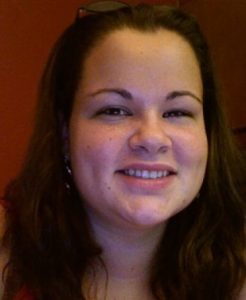 D.E. (Dan) Johnson, a graduate of Central Michigan University, is a history buff who has been writing fiction since childhood but had to hit his midlife crisis to get serious about it. His first novel, a historical mystery entitled The Detroit Electric Scheme, was published in 2010 by St. Martin’s Minotaur Books. The Detroit Electric Scheme was named one of Booklist’s Top Ten First Crime Novels of the Year and also won a 2011 Michigan Notable Book Award. Motor City Shakedown, the sequel to The Detroit Electric Scheme, was named one of the Top 5 Crime Novels of 2011 by The House of Crime and Mystery, called “extraordinarily vivid” by The New York Times, and won a 2012 Michigan Notable Book Award. Dan’s third book, Detroit Breakdown, was published in September, 2012 by St. Martin’s Minotaur Books. It was named to the best crime novels list for 2012 by multiple publications. Book four,The Detroit Shuffle, continuing the adventures of Will and Elizabeth into the world of political corruption, will be published in fall 2013 by St. Martin’s Minotaur Books.
D.E. (Dan) Johnson, a graduate of Central Michigan University, is a history buff who has been writing fiction since childhood but had to hit his midlife crisis to get serious about it. His first novel, a historical mystery entitled The Detroit Electric Scheme, was published in 2010 by St. Martin’s Minotaur Books. The Detroit Electric Scheme was named one of Booklist’s Top Ten First Crime Novels of the Year and also won a 2011 Michigan Notable Book Award. Motor City Shakedown, the sequel to The Detroit Electric Scheme, was named one of the Top 5 Crime Novels of 2011 by The House of Crime and Mystery, called “extraordinarily vivid” by The New York Times, and won a 2012 Michigan Notable Book Award. Dan’s third book, Detroit Breakdown, was published in September, 2012 by St. Martin’s Minotaur Books. It was named to the best crime novels list for 2012 by multiple publications. Book four,The Detroit Shuffle, continuing the adventures of Will and Elizabeth into the world of political corruption, will be published in fall 2013 by St. Martin’s Minotaur Books.
MWW committee member Linda Taylor interviewed Dan for this week’s newsletter.
Linda: You say in your bio that a “midlife crisis” got you started writing. Many of our attendees are in their midlife. What encouragement can you give older writers about following their dreams even at this time of life?
Dan: Like most MWW attendees, I was one of those kids who thought about trying to be a professional writer, but by the time I was ready to graduate from high school I had become convinced by my elders that it wasn’t practical. (BTW, even in my fifties I’m not saying that it is, but we don’t do this because of practicality.) I spent 25 years doing work I didn’t enjoy, and even though the rest of my life was grand, I was miserable.
My wife and I had always told our girls to try to live their dreams. I was the example of the one who never did. Finally, at 47 years old, I stopped working for two years and dove headfirst into writing. I knew I had a limited window, so I worked like crazy, hoping I could get a good book contract before I had to find another job. As it worked out, I was offered my first book contract by St. Martin’s Press about a year after I started looking for a job. (And it was a good thing I had found one, because that six-figure advance didn’t materialize like I had planned!)
It’s never too late. That’s one of the beauties of writing. We can do this until our minds are so feeble we can’t pick up a pencil. Perhaps by then software will be able to read our minds so that our senseless ravings can be saved for posterity.
Linda: You also say that when you began writing you took classes, read everything you could find, and wrote for hours every day before you hit upon the automotive history crime genre that you write. When did the light bulb go on for you about what you should write about?
Dan: The light bulb turned on one book too late. For some reason, I had a religious satire in my head that had to get out. (And this is from a person who had to get a book contract in two years!) Okay, I know it was a poor choice, but we probably all have a book to get off our chests before we can write something marketable. It turns out I thought I was funnier than I am.
I tried to sell that book and had some interest from agents, but no one was interested enough to give it a try. After a couple of months of depression, I went back to the drawing board. I love history and historical fiction, and I love good crime fiction. I set as my goal writing historical crime in an “E.L. Doctorow and T.C Boyle meet Elmore Leonard and Dennis Lehane” kind of way. (And then Lehane went and started writing historical crime too. Copying me? Someone should investigate.)
Linda: At MWW, you’ll be teaching about writing unforgettable characters and point of view. Who’s your favorite character in your books and why?
Dan: I have to say Elizabeth Hume, my protagonist Will Anderson’s ex-fiancee. Elizabeth has a pretty severe character arc through the books, starting as a heroin addict in The Detroit Electric Scheme and becoming a women’s suffrage leader by Detroit Shuffle (book 4, publishing Sept. 3). She and Will both grew up in privileged households and have had to learn a lot of hard lessons. She’s tough as nails and has even had to kill a few men along the way. It’s been fun to write a really strong female character, or maybe I should say a female character who has grown very strong.
I learned a lot about her writing Detroit Breakdown, because I had to write half the book from her perspective. It gave me a chance to really delve into her mind, which gave me a lot of insight into her character. It’s amazing how much these people will tell us if we listen carefully.
**********
My first MWW was in 2006, two months after I left my job to pursue writing. It was, hands-down, the most useful conference I’ve ever gone to. I learned a great deal about writing and about the industry. I went on to become a MWW Fellow in 2008, where Terry Faherty helped me hone the beginning of my first book, which sold four months later. MWW is the best writers’ conference there is!
Dan’s Part II sessions include:
- Characters You Can’t Forget – Who have you met in a novel who still seems like a friend-or an enemy? The author who created those characters had a plan and executed it well. Dan will show you how to create believable and compelling characters that draw readers into your stories. This workshop will put you on track to create characters your readers won’t be able to forget.
- Publishing in a Brave New World Panel: Sarah LaPolla, Roxane Gay, Barb Shoup, Jane Friedman, D.E. Johnson
- POV – Who’s Telling This Story? – Point of view is one of the most important decisions a writer has to make and can be one of the trickiest to handle. This fast-paced workshop Dan will not only provide the tips and tricks, he will have you writing from a unique point of view before the hour is out.



